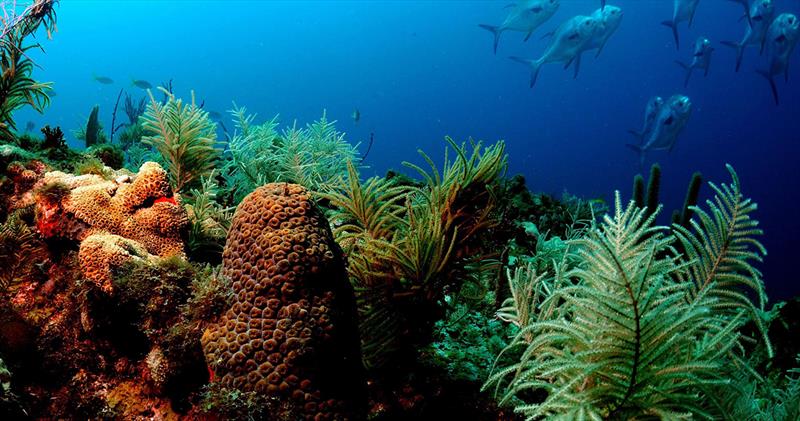
New study uses machine learning to understand coral reef tipping points
by Michelle Horton 18 Feb 2019 14:08 UTC

Coral Reef © NOAA Coral Reef Conservation Program
A new study, published this week in the Proceedings of the Royal Society - Biological Sciences, uses machine learning to examine interactions between human and environmental conditions impacting Hawaiian reef ecosystems. The study, led by the Stockholm Resilience Centre in collaboration with the Stanford Center for Ocean Solutions and other Ocean Tipping Points partners, is the first of its kind to quantify the influence of human and environmental conditions driving coral reef systems where both fish and benthic organisms, such as hard coral and algae, are taken into account. Identifying these key factors will inform coral reef management and help practitioners effectively anticipate, avoid, and respond to changes in coral reef health and resilience.
"In Hawaiian coral reef ecosystems researchers have collected a lot of data over space and time. This study takes a novel approach to analysis and synthesis of this complex data. The results provide critical insights for managers and provide a pathway to sustainability," said Larry Crowder, study coauthor, Edward F. Ricketts Provostial Professor of Marine Ecology and Conservation at Hopkins Marine Station, and senior fellow at the Stanford Woods Institute for the Environment.
To read more please go to the original article.